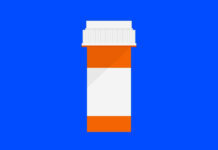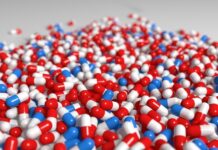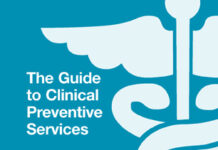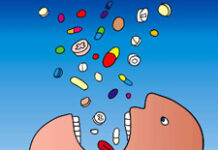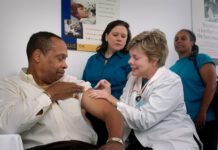‘Do Antidepressants Work?’ is the Wrong Question
“This research points to the inadequacy of asking the simple question: ‘Do antidepressants work?’ Instead, the value or otherwise of antidepressants needs to be understood in the context of the diversity of experience and the particular meaning they hold in people’s lives.”
Animal Study Supports Influence of Probiotics on Resilience to Stress
Researchers experimenting on mice found that Lactobacillus—the probiotic commonly found in yogurt—may help reduce depressive symptoms in reaction to chronic stressors. But human studies have found mixed results.
Patients More Likely to Refuse Drug-Only Treatment, Study Finds
The American Psychological Association (APA) recently published a study finding that patients assigned to drug-only treatments were more likely to refuse treatment, and more likely to drop out before treatment completion, than patients assigned to psychotherapy only.
Collaborative Care Effective for Older Adults with Depressive Symptoms
A new study suggests that depressive symptoms in older adults can be improved with non-invasive behavioral activation techniques. These approaches appear to have a preventative effect, serving to prevent further depressive symptoms from developing.
Most Off-Label Prescribing of Antidepressants Lacks Strong Scientific Evidence
A new study, published in the British Medical Journal, investigates the prevalence of off-label prescribing for antidepressant medication in primary care settings.
Despite Increase in Treatments, Prevalence of Mental Health Issues Climbs
Findings show that despite increases in treatment availability, the prevalence of mental health issues has not decreased.
Experts Concerned That Depression Screening Will Lead to Overdiagnosis
Behind the U.S. task force recommendation to screen all children and adults for depression.
New Data Show Lack of Efficacy for Antidepressants
An article published this month in the journal BMC Psychiatry suggests that there is a lack of efficacy for SSRIs and that they significantly increase the risk of serious side effects.
Benzodiazepines Continue to be Prescribed Without Psychotherapy to Older Adults
Researchers call for shift toward proven alternatives like psychotherapy in face of continued evidence of safety risks of benzodiazepines.
New Medications Fail to Show Efficacy for Alzheimer’s Disease
Three phase III clinical trials assessing the efficacy of Lundbeck’s investigational drug idalopirdine for Alzheimer’s disease have failed
Youngest Children in Class More Likely to get ‘ADHD’ Drugs
The researchers suggest that developmental immaturity is mislabelled as a mental disorder and unnecessarily treated with stimulant medication
Quitting Smoking May Help with Depression
A new study suggests that smoking cessation is related to depressive symptom improvement, but that depression may also make it harder to quit.
New Data Supports Acupuncture as a Treatment for Depression
Researchers found acupuncture effective in the treatment of chronic pain and depression
Physicians Underestimate Harms and Overestimate Benefits of Treatment
A new study analyzed over 13,000 doctors and found that physicians had a poor understanding of risks and benefits in every field, including psychopharmaceutical prescription, to CT scans, and cancer screening.
Neuroscience-based Treatment Program Proposed for Adolescent Depression
A study published in Frontiers in Human Neuroscience proposes a new model for the treatment of adolescents diagnosed with major depressive disorder (MDD).
Children with ‘ADHD’ Commonly Prescribed Antipsychotics
Despite little evidence for benefit, and substantial risk of harm, antipsychotics are commonly prescribed to children diagnosed with ADHD
Researcher Acknowledges His Mistakes in Understanding Schizophrenia
Sir Robin Murray, a professor at the Institute of Psychiatry, Psychology, and Neuroscience in London, states that he ignored social factors that contribute to ‘schizophrenia’ for too long. He also reports that he neglected the negative effects antipsychotic medication has on the brain.
Antidepressant use During Pregnancy may Increase Risk of Birth Defects
Use of antidepressants increased the risk of organ-specific malformations in women with depression
Antidepressant Use May Increase Risk of Hip Fractures in Older Adults
Study finds antidepressant use is linked to increase in hip fractures in community-dwelling older adults with and without Alzheimer’s disease.
BPS Releases Review of Alternatives to Antipsychotics
BPS releases report encouraging behavioral interventions for people with dementia, rather than antipsychotics
Acute Respiratory Failure More Likely in COPD Patients Prescribed Antipsychotics
Researchers recommend that healthcare professionals be vigilant regarding the signs of respiratory failure among patients with COPD who are receiving antipsychotics, especially during the initial treatment phase.
Treating Metabolic Conditions May Resolve Some Depressive Symptoms
New research suggests that treatable metabolic abnormalities underlie some treatment-resistant cases of depression—and treating the metabolic condition has the possibility of dramatically reducing depressive symptoms
Medical Interventions Are Overused Worldwide
Lack of “right care” causes physical, psychological and financial harm to patients
Industry Funded Trials Favor Drugs Over Psychotherapy
The researchers conclude that industry funding appears to bias studies towards pharmacotherapy over psychotherapy for the treatment of depression.
Mental Health Nurses Do Not Routinely Assess for Effects of Antipsychotic Medications
Researchers believe that side-effect monitoring is critical because of the increase in the use of antipsychotics

